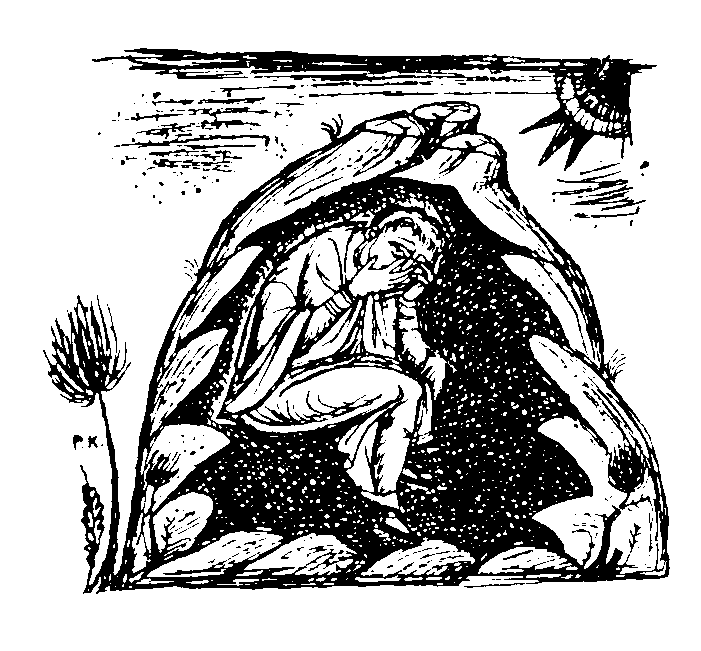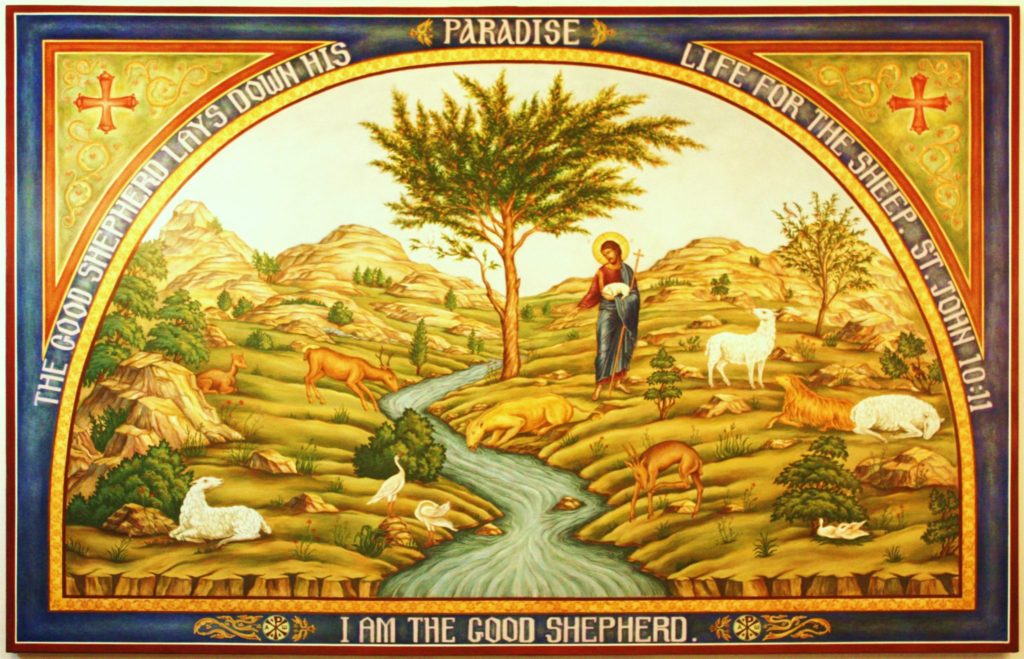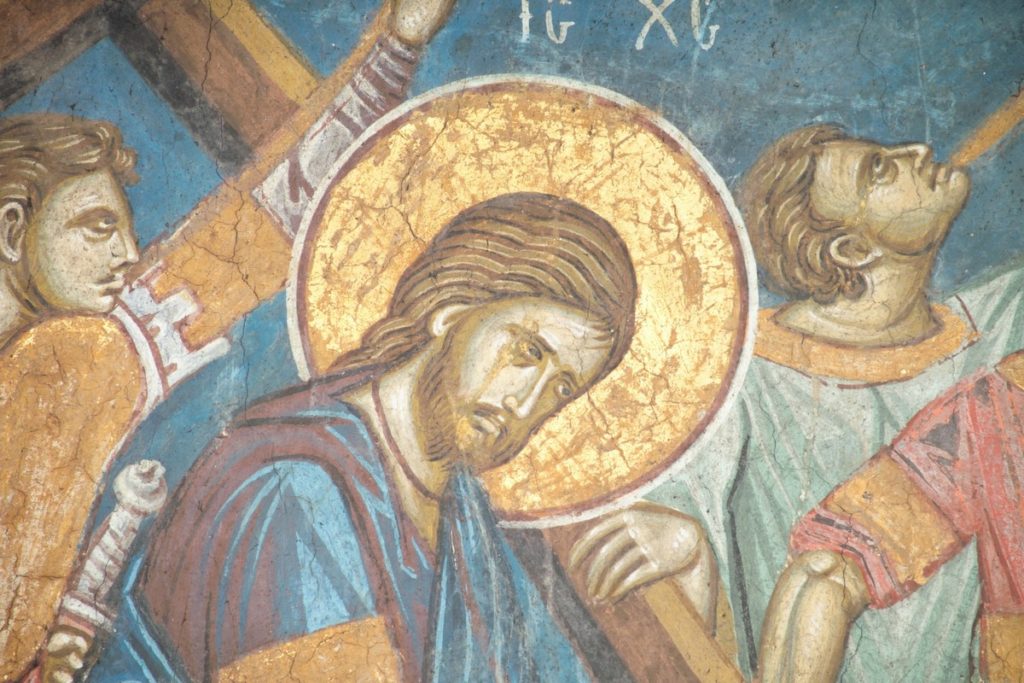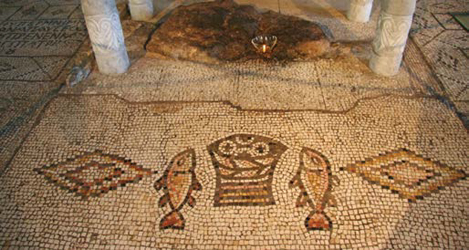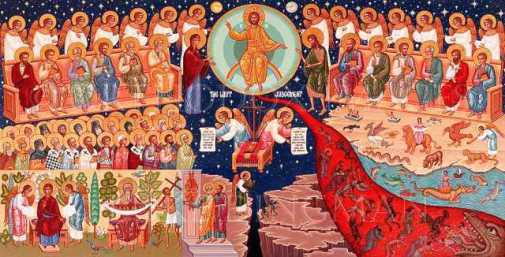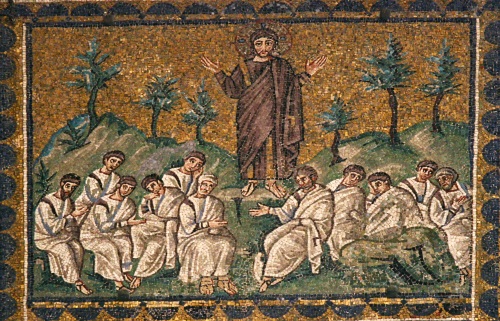Pentecost Week – Friday of the First Week of Matthew
Listen to an audio podcast of this post at https://www.spreaker.com/episode/virtue-above-nature-friday-of-the-first-week-of-matthew–50236642
In today’s Gospel, Our Lord continues His Sermon on the Mount, the charter of Gospel perfection.
Again, ye have heard that it hath been said by them of old time, Thou shalt not forswear thyself, but shalt perform unto the Lord thine oaths: But I say unto you, Swear not at all; neither by heaven; for it is God’s throne: Nor by the earth; for it is his footstool: neither by Jerusalem; for it is the city of the great King. Neither shalt thou swear by thy head, because thou canst not make one hair white or black. But let your communication be, Yea, yea; Nay, nay: for whatsoever is more than these cometh of evil. Ye have heard that it hath been said, An eye for an eye, and a tooth for a tooth: But I say unto you, That ye resist not evil: but whosoever shall smite thee on thy right cheek, turn to him the other also. And if any man will sue thee at the law, and take away thy coat, let him have thy cloak also. And whosoever shall compel thee to go a mile, go with him twain. – Matthew 5: 33-41
What does it mean to turn the other cheek? The Church does not teach absolute pacifism, for there are times when we must resist evil on behalf of others: for example, a Christian man who does not resist someone invading his home to kill his family is not only not virtuous but rather the opposite. An Orthodox warrior who fights for his nation to resist alien conquest fulfills Christ’s words that the greatest love is to lay down one’s life for one’s friends. And we must always struggle fiercely, with unwavering intransigence, against the enemies of the Church who devour men’s souls. It is to one’s own enemies that one must turn the other cheek; no one has given us the right to practice non-resistance to the enemies of God, the Church, the family, and the nation. We must practice meekness towards the person right in front of us whom we see every day, the one we live with, work with, worship with. It is he who is constantly offending our self-love; it is he whom God has sent into our lives to help us find our salvation.
Furthermore, meekness gives birth to courage: the man who – not from some defect of his incensive faculty but out of a conscious choice to practice evangelical meekness with the help of grace – does not repay with slander the colleague who slanders him at work, or who does not voice resentment against his brother-in-law for not repaying a loan, or who practices absolute silence in regard to his wife’s defects of character, is more, not less, likely to lead the charge when the battle trumpet sounds. Self-sacrifice has become his fundamental orientation, and virtue to virtue gives birth.
To acquire both the discernment and the power to start practicing lofty evangelical virtues like meekness, however, we must have a conscious inner life. There is no external calculus one can apply infallibly to every single moral situation – you have to construct an inner compass. In the introduction to his Russian translation of the Philokalia, St. Theophan the Recluse states that cultivating the inner life of attentiveness is required of every Christian, not only consecrated ascetics:
Secret life in our Lord Jesus Christ, which is the truly Christian life, begins, develops, and rises to perfection (for each in his own measure), through the good will of God the Father, by the action of the grace of the Holy Spirit present in all Christians, and under the guidance of the Lord Jesus Christ Himself, Who promised to abide with us for all time…God’s grace calls all men to such a life; and for all men it is not only possible but obligatory… – Writings from the Philokalia on Prayer of the Heart, Kadloubovsky and Palmer trans., Faber and Faber 1951, p. 13
The Sermon on the Mount, with its demand for perfection above nature (“Be ye therefore perfect as your heavenly Father is perfect”), is comprehensible only to those leading the grace-filled life of the Church in the manner intended by God, that is, with the struggle for unceasing attention and prayer, under the guidance of the Church and in conjunction with the life of the Holy Mysteries. Teachings created by minds functioning outside of this life, whether on moral philosophy, social reform, or proposed political utopias, all contain fatal flaws. The only way back for us, the only return to sanity – for ourselves, our families, our nations, our civilization – is through the strait gate of the heart.
